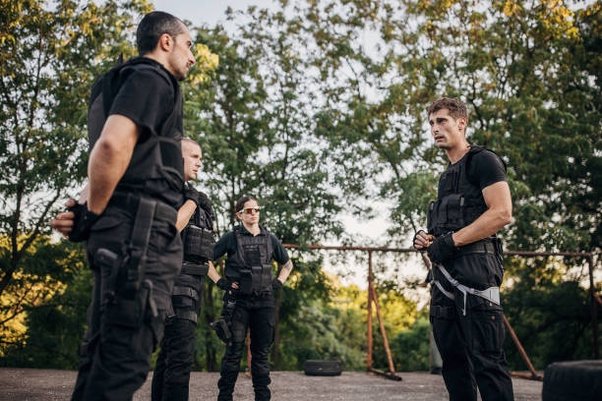rashemamelson.org – The allure of a career in police work is multifaceted, drawing individuals with its promise of adventure, the opportunity to serve the community, and the chance to make a tangible difference in people’s lives. However, the path to becoming a police officer is not an easy one. It requires dedication, resilience, and a commitment to rigorous training that prepares individuals for the challenges they will face on the job. This article delves into the essential aspects of training for a career in police work, highlighting the steps necessary to prepare for the triumphs and tribulations of this noble profession.
Physical Conditioning
Physical fitness is a cornerstone of police training. Officers must be in excellent physical condition to perform their duties effectively. This includes having the stamina to endure long shifts, the strength to handle physical altercations, and the agility to respond quickly to emergencies. Training programs often include a regimen of cardiovascular exercises, strength training, and agility drills. Aspiring officers should start preparing their bodies well in advance of any formal training, focusing on building endurance, strength, and flexibility.
Educational Foundation
While physical fitness is crucial, a solid educational foundation is equally important. Many police departments require applicants to have at least a high school diploma or GED. Some departments prefer or require some college education or a degree in criminal justice, law enforcement, or a related field. Courses in these areas provide valuable knowledge about the legal system, law enforcement procedures, and the social sciences, all of which are beneficial for a career in police work.
Police Academy Training
The police academy is where the real preparation for police work begins. Academy training is intense and comprehensive, covering a wide range of topics and skills. The curriculum typically includes:
- Legal Studies: Understanding the law is fundamental for police officers. Training includes learning about criminal law, search and seizure laws, arrest procedures, and the rights of the accused.
- Firearms Training: Officers must be proficient in the use of firearms. Training involves learning how to safely handle and shoot a firearm, as well as the rules of engagement.
- Defensive Tactics: Officers must be able to defend themselves and others. Training includes hand-to-hand combat techniques, use of force policies, and the proper use of less-lethal weapons.
- Emergency Vehicle Operations: High-speed chases and responding to emergencies require specialized driving skills. Officers learn how to operate police vehicles safely and effectively.
- First Aid and Emergency Medical Care: Officers often arrive first on the scene of accidents or emergencies. Training includes basic first aid, CPR, and how to manage medical emergencies until paramedics arrive.
Emotional and Psychological Preparedness
Beyond the physical and educational requirements, police work demands emotional and psychological strength. Officers must be prepared to deal with high-stress situations, trauma, and the potential for violence. Training programs often include sessions on stress management, critical incident stress debriefing, and the importance of seeking support when needed.
Continuing Education and Specialization
Training does not end with the police academy. Officers must continue to learn and adapt throughout their careers. Many choose to specialize in areas such as forensics, cybercrime, or hostage negotiation. Continuing education keeps officers up-to-date with the latest developments in law enforcement and helps them advance in their careers.
Conclusion
Training for a career in police work is demanding, but it is also incredibly rewarding. It prepares individuals not just for the physical challenges of the job, but also for the emotional and psychological demands. Through rigorous physical conditioning, a solid educational foundation, comprehensive police academy training, and ongoing professional development, aspiring officers can prepare themselves for the triumphs and challenges of a career in law enforcement. For those who are up to the task, the journey to becoming a police officer is a path to personal growth, professional achievement, and the opportunity to make a real difference in the community.
